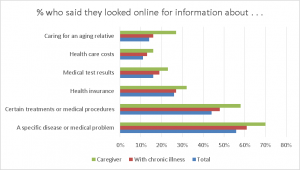
BILLOWING ACROSS RIFLE GAP, ARTIST CHRISTO JAVACHEFF’S SIX-TON $700,000 CURTAIN BILLOWS ACROSS RIFLE GAP. https://catalog.archives.gov/id/544847
The powers that be have shut the U.S. government down over a nonexistent immigration crisis. Department of Homeland Security statistics indicate that illegal border crossings are down. There is also data that undocumented immigrants have lower crime rates than native born citizens.
This is all smoke and mirrors fueled by racism and xenophobia.
Profiling
Racial profiling is the practice of accusing someone of criminal activity because of their race or ethnicity alone without evidence to support that accusation. It is where racism meets institutional power structures and it is all too common. The circumstances in which it occurs range from the absurd to the deadly.
Citizenship profiling is an extension of racial profiling and is an example of what academic types call intersectionality. This is, when different marginalized identities intersect. For example, Black men experience racial discrimination differently than Black women because of the intersection of race and gender. In the case of citizenship profiling, people in power question a person’s citizenship status based on things like the color of their skin, their accent, how well they speak English, or their clothing. In the process, they detain a significant number of innocent people, including U.S. citizens.
Citizenship profiling and neighborhoods
I recently came across an article by researchers at the University of Texas at El Paso that adds another layer to this issue by looking at citizenship profiling based on neighborhood as well as individual characteristics. The authors surveyed 563 people living in 46 neighborhoods in El Paso, TX. El Paso is 82% Latina/o, 25% foreign-born, and under heavy surveillance because of its location on the U.S.-Mexico border. Here is some of what they found:
- First- and second-generation immigrants are more likely to be questioned about their citizenship compared to third-generation, regardless of sex or age.
- Please note that second-generation immigrants were born here. They are U.S. citizens. Let that sink in for a moment and ponder how you would like to have your citizenship questioned because someone in power just doesn’t like the way you look.
- Those living in neighborhoods with a mid-range level of immigrants are more likely to be profiled than those with a higher density of immigrants.
- This may seem counter intuitive at first, but it is likely because those in mid-level neighborhoods are more integrated into the city and more mobile. That gives them more opportunity for law enforcement to give them the hairy eyeball.
We can’t generalize the results of this study beyond El Paso, but it does support the notion that citizenship profiling is occurring as a “back door” approach to enforcing immigration law. There is little data available on the effectiveness of profiling in actually decreasing crime. (If someone knows of some good studies on this, please share!)
Beyond whether or not it works, profiling raises a number of concerns. A few of those:
- Its constitutionality
- The ways in which it alienates vulnerable populations (the majority of whom are innocent)
- The assumption that individuals in power can act on their own biases and prejudices with discretion.
As always, I welcome your thoughts. Even if they contradict mine. As long as they are expressed respectfully and in the interest of thoughtful dialogue.



 Me: How is your [mother/father/husband/wife]?
Me: How is your [mother/father/husband/wife]? Dementia is a group of symptoms that can have a number of causes. Alzheimer’s Disease is the most common. The symptoms include difficulties with memory, language, problem solving, and other cognitive skills that make it progressively more difficult for the person to take care of everyday tasks.
Dementia is a group of symptoms that can have a number of causes. Alzheimer’s Disease is the most common. The symptoms include difficulties with memory, language, problem solving, and other cognitive skills that make it progressively more difficult for the person to take care of everyday tasks.
 There is some evidence that living in poverty creates cognitive overload which in turn can limit our ability to make decisions. Survival fatigue is the result of this. It is when we are so psychologically exhausted that we become paralyzed and unable to make good decisions which digs us into an even deeper hole. I imagine most of us have experienced some version of this at some point in our life. In this context, it’s a daily way of life because of the ongoing struggle to just make ends meet.
There is some evidence that living in poverty creates cognitive overload which in turn can limit our ability to make decisions. Survival fatigue is the result of this. It is when we are so psychologically exhausted that we become paralyzed and unable to make good decisions which digs us into an even deeper hole. I imagine most of us have experienced some version of this at some point in our life. In this context, it’s a daily way of life because of the ongoing struggle to just make ends meet.



 It’s graduation weekend at my university and this morning we had our School of Social Work recognition ceremony. It’s a happy day. Faculty parade around in funny robes and hats. Family and friends come to applaud and honor the hard work their graduate has done. There’s no parking anywhere, but the usual campus hot spots (like my office which is typically a dance party all day long) are ghostly quiet.
It’s graduation weekend at my university and this morning we had our School of Social Work recognition ceremony. It’s a happy day. Faculty parade around in funny robes and hats. Family and friends come to applaud and honor the hard work their graduate has done. There’s no parking anywhere, but the usual campus hot spots (like my office which is typically a dance party all day long) are ghostly quiet.